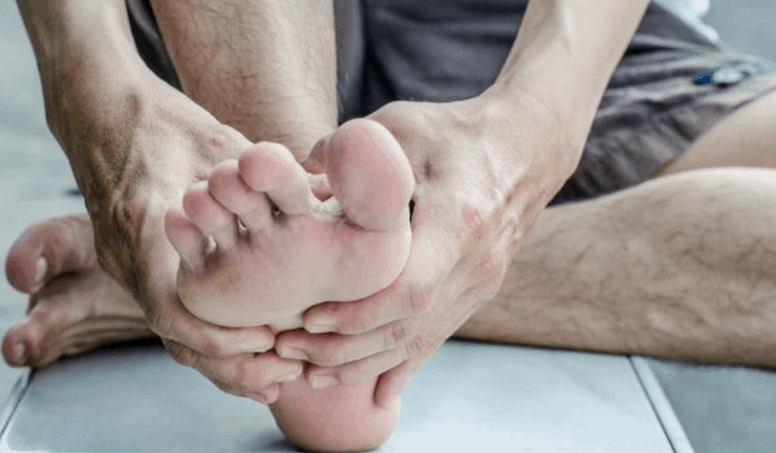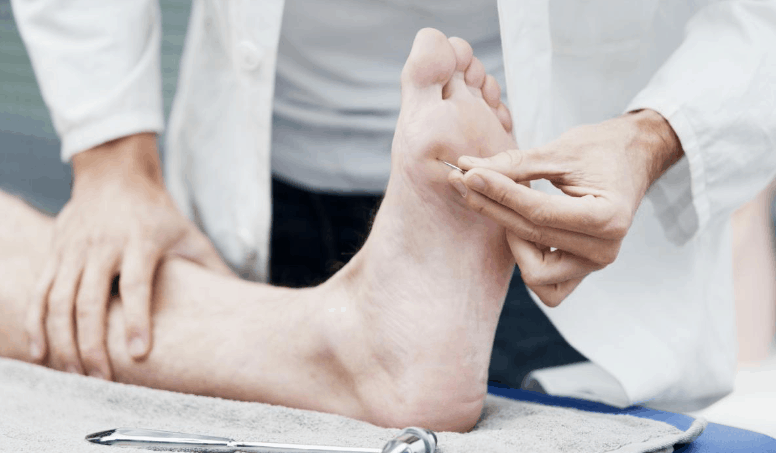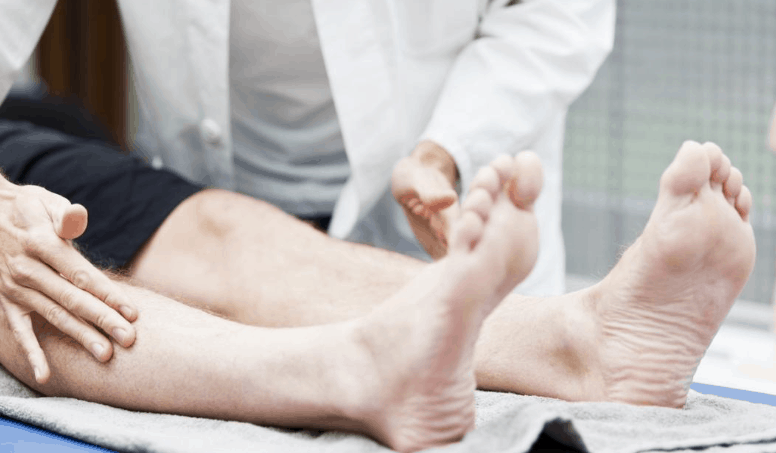If you are struggling with neuropathy assignments writing, need some experts to help you with your assignments, you are at the right place. Getting expert help is the only solution for your neuropathy assignments.
Our assignment service offers you an excellent opportunity by supporting you on your assignments. Our experts offer in-depth details of various topics which helps you to understand your assignments with ease. As a leading assignment service provider, we make an effort to sharpen your skills of writing assignments, homework tests and any project related to the subject.
Let us help you to score top-notch grade in your assignment by submitting best, clear, proficient, quality and professional assignment. Let us discuss and explore more about the Peripheral neuropathy.
Table of Contents
ToggleAssignment Help For Peripheral Neuropathy
Overview
Peripheral neuropathy, a result of damage to peripheral nerves which are present outside our brain and spinal cord, often causes numbness, weakness, and pain, usually in hands and feet. In some cases, it affects other body parts too.
Your peripheral nervous system is very crucial part of the body as it sends information from your brain and spinal cord to the rest of your body. The peripheral nerves also transfer sensory information to the central nervous system.
Peripheral neuropathy can result from traumatic injuries, metabolic problems, infections, exposure to toxins or inherited causes and diabetes is also one of the common causes.
People with peripheral neuropathy generally describe the pain as burning, stabbing or tingling. In most of the cases, symptoms can be improved, especially if they are caused by a treatable condition. Medications can reduce the pain of peripheral neuropathy.
Symptoms
Every nerve in the peripheral system performs a specific function, so symptoms depend on the type of nerves affected. Nerves are classified as:
- Sensory nerves that receive sensation, such as pain, temperature, vibration or touch
- Motor nerves that control muscle movement
- Autonomic nerve that control functions such as heart rate, blood pressure, digestion and bladder
Symptoms of peripheral neuropathy include:
- Gradual onset of prickling, numbness or tingling in hands and feet
- Severe sensitivity to touch
- Muscle weakness
- Pain during activities such as feet pain when you put weight on them or when they are under a blanket
- Paralysis if in case motor nerves are damaged
- Lack of coordination
- Jabbing, Sharp, throbbing or burning pain
- Feeling as if you are wearing socks or gloves when you are not
If autonomic nerves are affected, symptoms are:
- Heat intolerance
- Bowel, bladder or digestive problems
- Extreme sweating or not being able to sweat
- Changes in blood pressure, causing lightheadedness or dizziness
Causes
There are multiple causes for peripheral neuropathy. Health conditions that cause peripheral neuropathy are:
- Autoimmune diseases
These include lupus, Sjogren’s syndrome, rheumatoid arthritis, chronic inflammatory demyelinating polyneuropathy, Guillain-Barre syndrome and vasculitis.
- Diabetes
More than 50% of people with diabetes develop peripheral neuropathy.
- Infections
These include certain bacterial or viral infections, including shingles, Lyme disease, Epstein-Barr virus, leprosy, hepatitis B and C, diphtheria and HIV.
- Inherited disorders
Disorders including Charcot-Marie-Tooth disease are heriditary types of neuropathy.
- Tumor
Growths, noncancerous (benign) and cancerous (malignant) can also develop on the nerves or press nerves. Also, polyneuropathy can be a result of some cancers related to the body’s immune. These are a form of a degenerative disorder known as paraneoplastic syndrome.
- Bone marrow disorders
These comprise of an abnormal protein in the blood (monoclonal gammopathies), a form of lymphoma, bone cancer (myeloma) and the rare disease amyloidosis.
- Other diseases
These might include liver disease, kidney disease, an underactive thyroid (hypothyroidism) and connective tissue disorders.
Other causes might include:
- Alcoholism
Poor diet plan made by people with alcoholism can cause vitamin deficiencies.
- Exposure to poisons
Toxic substances such as industrial chemicals and heavy metals such as mercury and lead.
- Medications
Certain medications, especially which are used for cancer treatment (chemotherapy), may cause peripheral neuropathy.
- Trauma or pressure on the nerve
Traumas, such as falls or sports injuries, motor vehicle accidents, can damage peripheral nerves. Nerve pressure can lead to having a cast or repeating a motion such as typing many times.
- Vitamin deficiencies
Vitamins B— including B-6, B-1 and B-12 — vitamin E and niacin are vital for nerve health.
Risk factors
Peripheral neuropathy risk factors are:
- Diabetes, especially if your sugar levels are poorly controlled
- Vitamin deficiencies, mainly B vitamins
- Alcohol abuse
- Infections, such as shingles, Lyme disease, Epstein-Barr virus, HIV and hepatitis B and C
- Autoimmune diseases, such as lupus and rheumatoid arthritis, in which immune system attacks its own tissues
- Family history of neuropathy
- Exposure to toxins
- Liver Kidney or thyroid disorders
- Repetitive motion, for those who perform certain jobs
Prevention
The best way to prevent peripheral neuropathy is to manage medical conditions such as alcoholism, diabetes or rheumatoid arthritis.
Make healthy lifestyle choices
Healthy habits positively support your nerve health, they are as follows:
- Healthy Food habits
Eat a diet rich in vegetables, fruits, whole grains and protein to keep nerves strong. Protect yourself against vitamin B-12 deficiency by eating fish, meats, eggs, fortified cereals and low-fat dairy foods. If you’re vegan, prepared cereals are a rich source of vitamin B-12, but consult your doctor about B-12 supplement.
- Exercise regularly
With your doctor recommendation, try at least 30 minutes to one hour of exercise at least two times a week.
Avoid factors which cause nerve damage such as cramped positions that put pressure on nerves, repetitive motions, exposure to toxic chemicals, overindulging in alcohol and smoking.
Searching for all-inclusive Assignment Solutions?
Just like we have been successful in providing the knowledge about Peripheral neuropathy subject to you, our CPID Assignment specialists have supported a lot of students by offering them excellent assignment solutions. With the enthusiastic efforts of our experts, we helped students to achieve top-notch grades.













